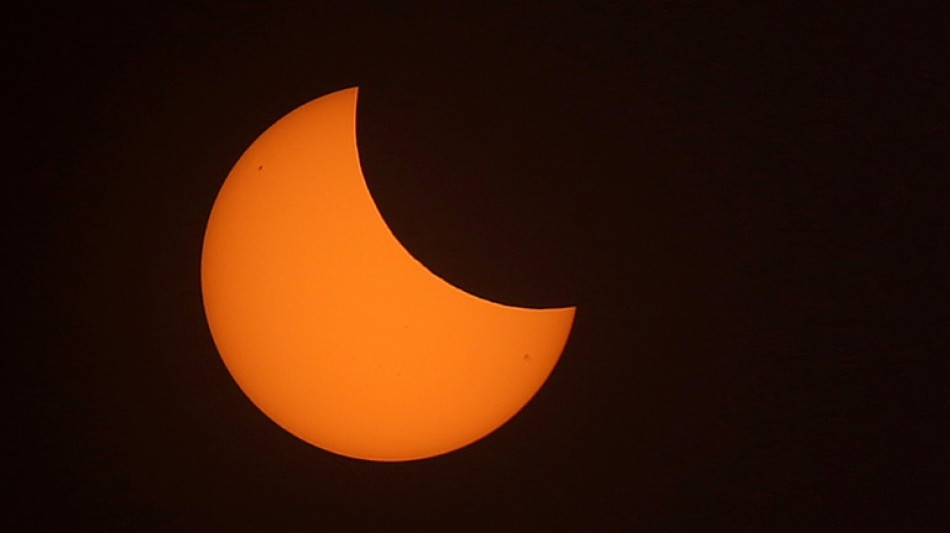
-
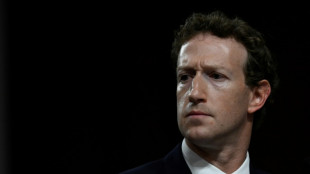 Zuckerberg denies Meta bought rivals to conquer them
Zuckerberg denies Meta bought rivals to conquer them
-
Starc stars as Delhi beat Rajasthan in Super Over

-
 Weinstein asks to sleep in hospital, citing prison 'mistreatment'
Weinstein asks to sleep in hospital, citing prison 'mistreatment'
-
Amorim asks McIlroy to bring Masters magic to Man Utd

-
 Ruud keeps Barcelona Open defence on course
Ruud keeps Barcelona Open defence on course
-
Trump tariffs could put US Fed in a bind, Powell warns

-
 CONCACAF chief rejects 64-team World Cup plan for 2030
CONCACAF chief rejects 64-team World Cup plan for 2030
-
Putin praises Musk, compares him to Soviet space hero

-
 Son to miss Spurs' Europa League trip to Frankfurt
Son to miss Spurs' Europa League trip to Frankfurt
-
US senator in El Salvador seeking release of wrongly deported migrant

-
 Trump tariffs could put the US Fed in a bind, Powell warns
Trump tariffs could put the US Fed in a bind, Powell warns
-
US judge says 'probable cause' to hold Trump admin in contempt

-
 India opposition slams graft charges against Gandhis
India opposition slams graft charges against Gandhis
-
Nate Bargatze to host Emmys: organizers

-
 US Fed Chair warns of 'tension' between employment, inflation goals
US Fed Chair warns of 'tension' between employment, inflation goals
-
Trump touts trade talks, China calls out tariff 'blackmail'

-
 US judge says 'probable cause' to hold govt in contempt over deportations
US judge says 'probable cause' to hold govt in contempt over deportations
-
US eliminates unit countering foreign disinformation

-
 Germany sees 'worrying' record dry spell in early 2025
Germany sees 'worrying' record dry spell in early 2025
-
Israel says 30 percent of Gaza turned into buffer zone

-
 TikTok tests letting users add informative 'Footnotes'
TikTok tests letting users add informative 'Footnotes'
-
Global uncertainty will 'certainly' hit growth: World Bank president

-
 EU lists seven 'safe' countries of origin, tightening asylum rules
EU lists seven 'safe' countries of origin, tightening asylum rules
-
Chelsea fans must 'trust' the process despite blip, says Maresca

-
 Rebel rival government in Sudan 'not the answer': UK
Rebel rival government in Sudan 'not the answer': UK
-
Prague zoo breeds near-extinct Brazilian mergansers

-
 Macron to meet Rubio, Witkoff amid transatlantic tensions
Macron to meet Rubio, Witkoff amid transatlantic tensions
-
WTO chief says 'very concerned' as tariffs cut into global trade

-
 Sports bodies have 'no excuses' on trans rules after court ruling: campaigners
Sports bodies have 'no excuses' on trans rules after court ruling: campaigners
-
Zverev joins Shelton in Munich ATP quarters

-
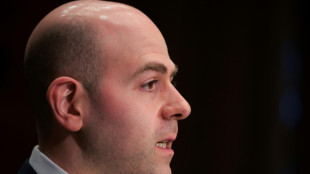 The Trump adviser who wants to rewrite the global financial system
The Trump adviser who wants to rewrite the global financial system
-
US senator travels to El Salvador over wrongly deported migrant

-
 UN watchdog chief says Iran 'not far' from nuclear bomb
UN watchdog chief says Iran 'not far' from nuclear bomb
-
Trump says 'joke' Harvard should be stripped of funds

-
 Macron vows punishment for French prison attackers
Macron vows punishment for French prison attackers
-
Canada central bank holds interest rate steady amid tariffs chaos
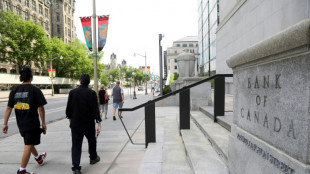
-
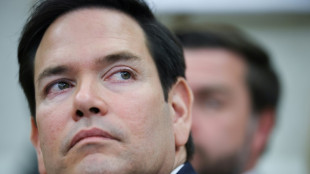 Rubio headed to Paris for Ukraine war talks
Rubio headed to Paris for Ukraine war talks
-
Australian PM vows not to bow to Trump on national interest

-
 New attacks target France prison guard cars, home
New attacks target France prison guard cars, home
-
Global trade uncertainty could have 'severe negative consequences': WTO chief

-
 Google facing £5 bn UK lawsuit over ad searches: firms
Google facing £5 bn UK lawsuit over ad searches: firms
-
Onana to return in goal for Man Utd against Lyon: Amorim

-
 Tiktok bans user behind Gisele Pelicot 'starter kit' meme
Tiktok bans user behind Gisele Pelicot 'starter kit' meme
-
'Put it on': Dutch drive for bike helmets

-
 China's Xi meets Malaysian leaders, vows to 'safeguard' Asia allies
China's Xi meets Malaysian leaders, vows to 'safeguard' Asia allies
-
France urges release of jailed Russian journalists who covered Navalny

-
 Gabon striker Boupendza dies after 11th floor fall
Gabon striker Boupendza dies after 11th floor fall
-
UK top court rules definition of 'woman' based on sex at birth

-
 PSG keep Champions League bid alive, despite old ghosts reappearing
PSG keep Champions League bid alive, despite old ghosts reappearing
-
Stocks retreat as US hits Nvidia chip export to China


Partial solar eclipse to cross swathe of Northern Hemisphere
Skygazers across a broad swathe of the Northern Hemisphere will have a chance to see the Moon take a bite out of the Sun on Saturday when a partial solar eclipse sweeps from eastern Canada to Siberia.
The partial eclipse, which is the first of the year and the 17th this century, will last around four hours from 0850 GMT to 1243 GMT.
Curious observers making sure to protect their eyes might be able to see the celestial show in most of Europe, as well as in some areas of northeastern North America and northwest Africa.
Eclipses occur when the Sun, Moon and Earth all line up. When they perfectly align for a total solar eclipse, the Moon fully blots out the Sun's disc, creating an eerie twilight here on Earth.
But that will not happen during Saturday's partial eclipse, which will instead turn the Sun into a crescent.
"The alignment is not perfect enough for the cone of shadow to touch the Earth's surface," Paris Observatory astronomer Florent Deleflie told AFP.
Because that shadow will "remain in space, there will not be a total eclipse anywhere" on Earth, he said.
At most, the Moon will cover around 90 percent of the Sun's disc. The best view will be from northeastern Canada and Greenland at the peak time of 1047 GMT.
- Beware eye damage -
It will be less spectacular in other areas. In France, for example, between 10 to 30 percent of the Sun's disc will be obscured, depending on the region.
Ireland will see around 40 percent, according to Sophie Murray of the Dublin Institute of Advanced Studies. However rain is forecast.
These smaller percentages of eclipse will not be visible to the naked eye.
However, if the sky is clear, skygazers will be able to watch the eclipse through special viewers -- as long as they take precautions.
Looking straight at the Sun -- during an eclipse or otherwise -- can lead to irreversible vision loss.
Skygazers are advised to buy eclipse-viewing glasses and ensure they are in good condition.
Even a slight defect or "microscopic hole" can cause eye damage, Deleflie warned.
Or, people could watch the eclipse at a local astronomy observation centre where "you can safely verify the precision of celestial mechanics and marvel at interesting details on the Sun's surface, such as sunspots", Deleflie said.
Murray offered another option.
"You can make a simple pinhole projector by poking a small hole in a piece of paper or cardboard and letting sunlight pass through it onto the ground or another surface, where you'll see a small, inverted image of the eclipsed Sun," she said.
The partial eclipse will not turn up on a smartphone camera without a suitable filter, Deleflie added.
The latest celestial show comes two weeks after skygazers across much of the world marvelled at a rare total lunar eclipse, dubbed a "Blood Moon".
These events often happen after each other because the Moon has "completed a half-circle around the Earth in the meantime, reversing the configuration", Deleflie explained.
A greater spectacle is expected on August 12, 2026, when a total solar eclipse will be visible in Iceland, northern Spain and parts of Portugal.
More than 90 percent of the Sun will also be obscured in areas of Europe including Britain, France and Italy.
It will be the first total solar eclipse since one swept across North America in April 2024.
R.Fischer--VB




